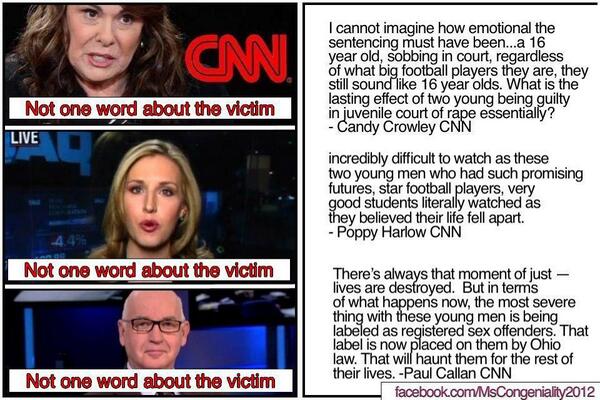Rape should be treated as a crime not only against women but society, only then will it be seen as more than a ‘zenana’ issue cloistered in a female-restricted enclave.
However, can we trust society if it uses such a crime to further create fissures? Take the example of what happened in Meerut, Uttar Pradesh, on Sunday:
A 20-year-old BA student, a former part-time teacher at a madrasa in Meerut’s Sarawa village, has alleged that she was abducted from her residence, forcibly converted to Islam, and gangraped in another madrasa in Hapur. She has also alleged that she was held captive in a madrasa in Mustafa colony, Muzaffarnagar, for over three days, where she was again reportedly raped, abused and forced to eat fish. The woman claimed she managed to escape on August 3 and reached Meerut, after which she reported the matter to the police. The woman also claimed that she met other women at the madrasa in Muzaffarnagar, who were being held captive before being sent to Dubai.
What ought to be the most condemnable crime here? Rape. Is this how society will see it? Unlikely. It is a delicate matter not because of who the criminal is, but how the main crime is sidelined. The police registered a case of kidnapping, gangrape, outraging religious feelings of any class and criminal intimidation against the accused.
The Indian Express has referred to her as an “alleged victim”. Their reporter has met her father. Following the Muzaffarnagar riots where it was established that both the Samajwadi Party and the BJP were not beyond using any means to gain political mileage, any news coming from UP is seen as at least partly a political ploy. This is worrying because a victim would be doubted when it is the leadership that must be.
Also of concern is the demand that mainstream media has given it little attention. A crime is not rendered important enough unless it is on TV, it would seem. The media will have to shoulder the blame, for it has laid the foundation for prime-time bombast and letting demons hover over studios. Therefore, if it chooses to ignore a story of this nature it does draw attention. Unfortunately, while blaming the ‘secular media’, the accused targets are those the media is seen to protect. In this case, it would be deemed as kid-glove treatment for Muslims. That a community is berated for what some criminals do and is expected to speak out is itself an example of how rape and assault will be viewed. Muslim groups have not asked the media to go slow on the criminals who follow their faith; the media uses and abuses them just when it suits their agenda at a given time.
To return to the case, why is Hindustan Times that was the first to break the news using terms like “alleged forced conversion” and “as claimed” even in its follow-up report? Because some details have not been confirmed – she did not record her statement, she says she was wearing a veil so could not name the hospital where she was taken for surgery following bleeding, her medical tests are incomplete, she could not identify the rapists, and in a raid on a madrasa where she said others were confined the police did not find any girls.
It is impossible to jump the gun only to satiate the blood lust of a few, and I do believe that such issues get sensationalised, whoever is at the firing line.
What should be done in rape cases is for the victim to be provided with trauma care, and not be pushed into a communal cauldron. The cops were given the name of the madrasa, the cleric, and a few important details. It is their job to follow up. They have arrested three of the four persons.
Meanwhile, the Rapid Action Force has been called in. Would this have happened were it a rape case? It is to deal with the situation about the conversion angle. There was stone pelting. Some BJP leaders have issued threats. Is this not unusual? When it is a police case, who are they threatening and why? I would understand if they use pugnacious language against clerics, but the general threatening tone seems to suggest that they can thrive only in an atmosphere of strife. And what makes the party assume it is the spokesperson for Hindus? Is this its only plank to topple the state government and govern?
If there were a human trafficking racket, then would it escape the eyes of the authorities? Some clerics trying to convert people is very much possible, though. Let there be an inquiry and arrest them. Chances are this will be used as a ruse to shut down madrasas. If anything, the fact that this young woman taught Hindi and English at one at least proves that these are also general schools.
I would like to add that there are a few secularists who capitalise on religion as much as the fundamentalists. There is no need to state after every crime a Muslim commits things like, “This is against Islam.” It serves to feed those who wish to communalise crimes. They get away with the halo that comes with being seen to be non-partisan, but it is other kinds of partisanship that gets them this far.
With everybody trying to be better, the victim is the loser. In order of priority, her rapists should be first tried. The conversion and trafficking angle probe should continue, for according to the complaint it is not confined to her.
It would help if onlookers did not fall for every communal bait politicians throw their way.
--
Update:
Reports continue to bring in other aspects to the case. I would rather not comment because a young woman is involved. Read for yourself here.
--
--
Image: The house of the girl's relatives in Meerut, Indian Express
















